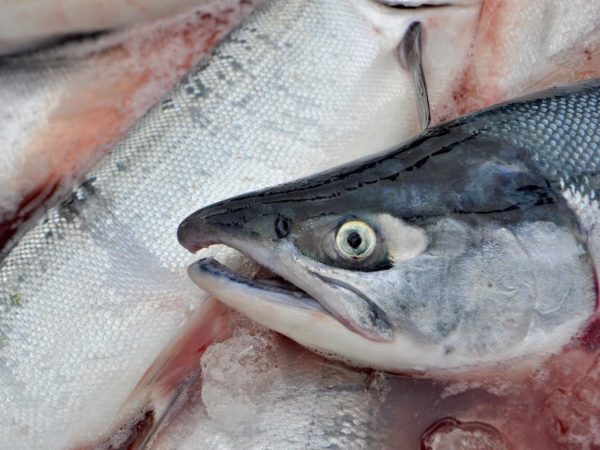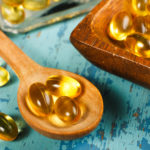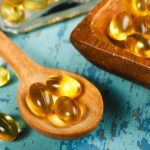Fish Oil and Omega-3

What is fish oil?
Fish oil is a rich source of the two essential omega-3 fatty acids known as EPA (eicosapentaenoic acid) and DHA (docosahexaenoic acid). It occurs in the fatty tissues of cold-water, oily fish and is also available in supplement form (liquids or capsules).
Why is fish oil and omega-3 necessary?
Both omega-3 and omega-6 fats are “essential,” meaning the body cannot make them; they must be obtained from the diet. For most of human history, these fatty acids were present in the diet in roughly equal amounts. However, modern foods provide an overabundance of omega-6’s, mostly from refined vegetable oils that are ubiquitous in fried food and snack foods like cookies and crackers. Omega-3s, conversely, are now relatively rare in American diets. The resulting imbalance of these essential fats drives inflammation and promotes a number of diseases, including heart attack, stroke, several forms of cancer and autoimmune diseases such as rheumatoid arthritis.
Compared to typical dietary intakes, regular consumption of fatty fish and/or supplemental fish oil and the omega-3 fatty acids these contain, combined with reduced intake of omega-6 fatty acids, can optimize fatty acid ratios and reduce inflammation, protecting both mental and physical health. EPA supports heart health. DHA is a constituent of membranes of nerve cells in the brain and is thought to play an important role in normal brain development and function.
What are the signs of an omega-3 deficiency?
The average American diet is universally lacking in omega-3’s.The development of any of the conditions noted above may indicate a deficiency. Other signs of possible deficiency include excessive thirst, frequent urination, and dry hair and skin.
How much, and what kind of omega-3s does an adult need?
Dr. Weil recommends eating oily cold-water fish 2-3 times per week. If you use fish oil capsules, he recommends taking a USP certified product that provides 700 to 1,000 mg of EPA and 200 to 500 mg of DHA daily in the smallest number of pills. If you use liquid fish oil, find one that provides these amounts in the fewest teaspoons. Pregnant women in particular should be sure to supplement, as adequate supplies of omega-3 fatty acids are crucial to optimal brain and nervous system development in the fetus. When choosing a supplement, look for one derived from molecularly distilled fish oils – these are naturally high in both EPA and DHA and low in contaminants. Also choose a supplement brand that has been independently tested and guaranteed to be free of heavy metals such as mercury and lead, and other environmental toxins including polychlorinated biphenyls, also known as PCBs.
How much fish oil does a child need?
Fish oil has been used at one to three grams daily to help alleviate the symptoms of ADHD in children, but Dr. Weil believes the evidence is clear that all children can benefit from eating cold-water, oily fish at least twice weekly or from supplementing with one gram of fish oil daily. Effective doses are not clearly established, so consult your pediatrician before giving children fish oil supplements.
How do you get enough fish oil and omega-3s from food?
Oily fleshed, cold water fish such as wild Alaskan salmon, mackerel, sardines, herring and black cod are the best sources of fish oil.
Are there any risks associated with too much omega-3s?
Very large intakes of fish oil/omega-3 fatty acids (termed “Eskimo amounts” by the National Institutes of Health, referring to diets that consist almost exclusively of fish) may increase the risk of hemorrhagic stroke, and have been associated with nosebleed and blood in the urine.
Are there any other special considerations?
Because they can affect blood clotting, use fish oil supplements cautiously if you’re taking any anticoagulant drugs such as Coumadin (warfarin), have had a hemorrhagic stroke, or are scheduled for surgery. People with allergies to fish should avoid fish-derived omega-3 capsules. Fish flesh may contain mercury, so pregnant and breastfeeding women and children should take care to eat species of fish that are low on the food chain and relatively free of contaminants. Dr. Weil particularly recommends sardines, as they are both relatively mercury-free and abundant.
Vegetarians and others who avoid fish can take omega-3 supplements derived from algae.
Originally Posted April 2009. Updated September 2024.











